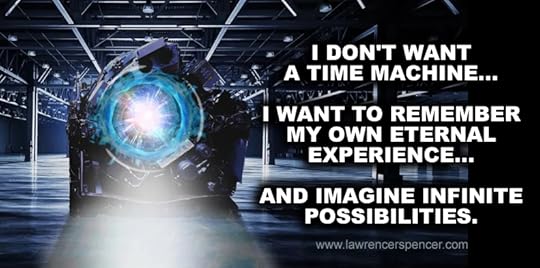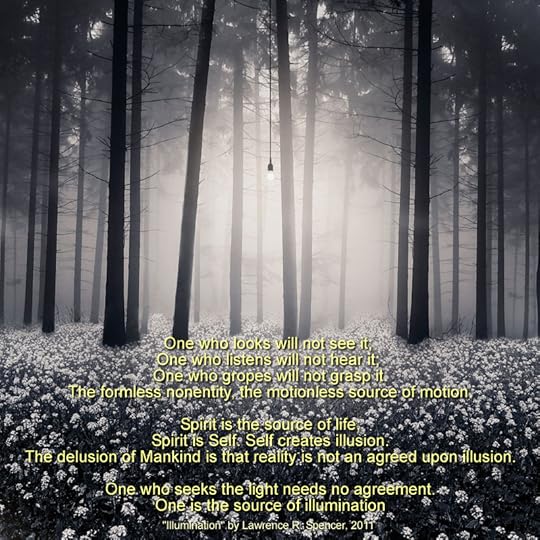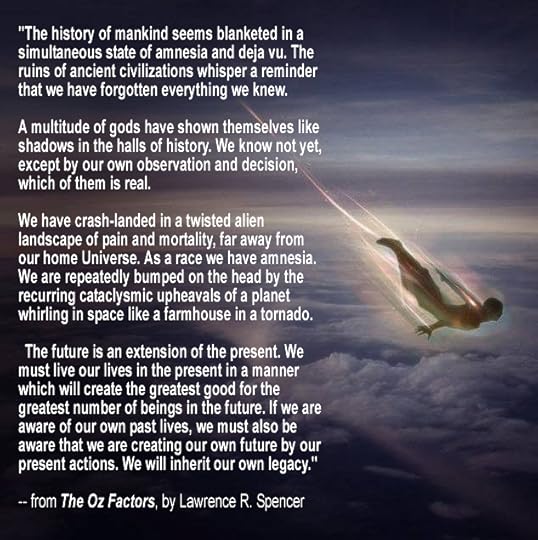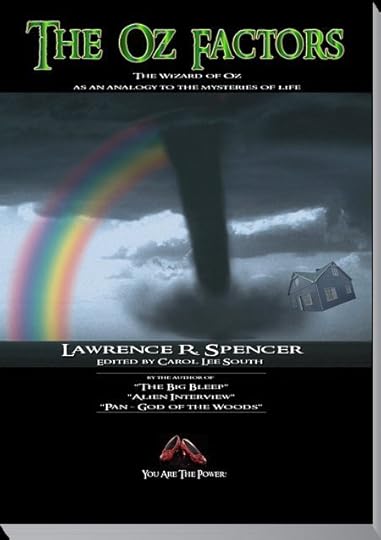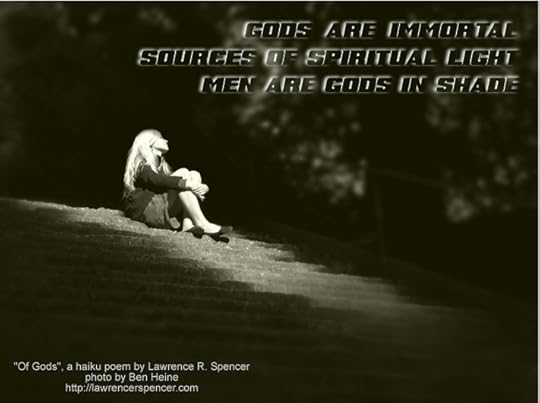Lawrence R. Spencer's Blog, page 238
July 10, 2020
HYPER-DIMENSION
Republished by Blog Post Promoter
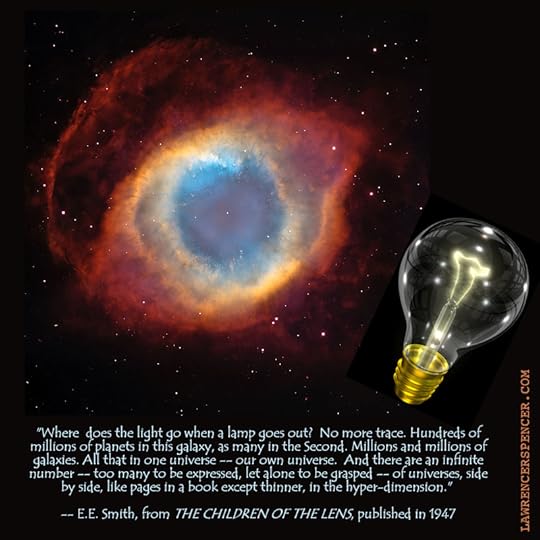 “Where does the light go when a lamp goes out? No more trace. Hundreds of millions of planets in this galaxy, as many in the Second. Millions and millions of galaxies. All that in one universe—our own universe. And there are an infinite number—too many to be expressed, let alone to be grasped—of universes, side by side, like pages in a book except thinner, in the hyper-dimension.”
“Where does the light go when a lamp goes out? No more trace. Hundreds of millions of planets in this galaxy, as many in the Second. Millions and millions of galaxies. All that in one universe—our own universe. And there are an infinite number—too many to be expressed, let alone to be grasped—of universes, side by side, like pages in a book except thinner, in the hyper-dimension.”
— E.E. Smith, from THE CHILDREN OF THE LENS, the final book of the Lensman series originally serialized in the magazine Astounding beginning in 1947.
A LIFETIME IN A MIRROR
Republished by Blog Post Promoter
LIFE IS SHORT. WHEN YOU’RE YOUNG, YOU THINK YOU’RE INVINCIBLE. AS YOU AGE, NOT SO MUCH….
(via Miss Cellania)
ALL WE NEED TO KNOW
Republished by Blog Post Promoter
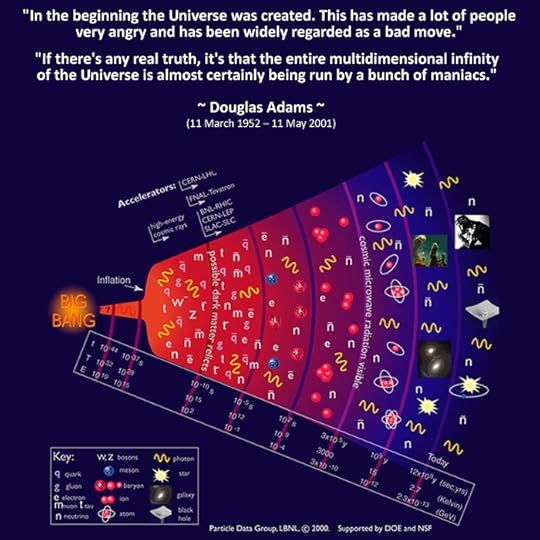 Everything we know, and need to know, to understand “the universe(s)” was stated simply and precisely by Douglas Adams. As one maniac to another, I think the universe is what we agree it is. – Lawrence R. Spencer
Everything we know, and need to know, to understand “the universe(s)” was stated simply and precisely by Douglas Adams. As one maniac to another, I think the universe is what we agree it is. – Lawrence R. Spencer
“In the beginning the Universe was created. This has made a lot of people very angry and has been widely regarded as a bad move.”
“If there’s any real truth, it’s that the entire multidimensional infinity of the Universe is almost certainly being run by a bunch of maniacs.”
July 9, 2020
NO TIME MACHINE
READ WHAT THE MASTER READS
Republished by Blog Post Promoter
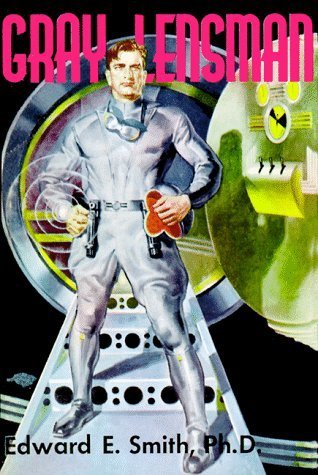 Since I received and published the interview transcripts from the late Nurse Matilda MacElroy, which I published in the non-fiction book Alien Interview, I have become a great fan of E. E. “Doc” Smith, (May 2, 1890 – August 31, 1965) an American science fiction author, best known for the Lensman and Skylark series. He is sometimes called the father of “space opera“.
Since I received and published the interview transcripts from the late Nurse Matilda MacElroy, which I published in the non-fiction book Alien Interview, I have become a great fan of E. E. “Doc” Smith, (May 2, 1890 – August 31, 1965) an American science fiction author, best known for the Lensman and Skylark series. He is sometimes called the father of “space opera“.
After reading these two series of books, and a few others by the same writer, I can understand why Doc Smith was an influence of the iconic writers and film makers such as George Lucas, who reveals in his biography, that the Lensman novels were a major influence on his youth. And, J. Michael Straczynski, creator of the science fiction television series Babylon 5, also has acknowledged the influence of the Lensman books. Sir Arthur C. Clarke‘s space battle in Earthlight was based on the attack on the Mardonalian fortress in chapter seven of Skylark Three. Superman-creator Jerry Siegel was impressed, at an early age, with the optimistic vision of the future presented in Skylark of Space. Ron Howard‘s Imagine Entertainment and Universal Studios are in negotiation with the Smith estate for an 18-month film rights option on the series.
In order to gain a greater understanding of his books, and the amazing science and philosophical points of view revealed by “The Master”, Doc Smith, I thought it would be a good idea to read some of the books that influenced “The Master”. Read the works of “The Master”, but also read what “The Master” has read.
In his 1947 essay “The Epic of Space”, E.E. “Doc” Smith listed (by last name only) authors he enjoyed reading:
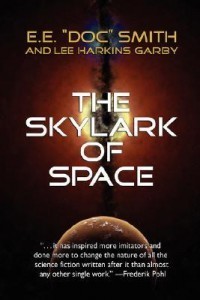
John W. Campbell, L. Sprague de Camp, Robert A. Heinlein, Murray Leinster, H. P. Lovecraft, A. Merritt (specifically The Ship of Ishtar, The Moon Pool, The Snake Mother, and Dwellers in the Mirage, as well as the character John Kenton), C.L. Moore (specifically Jirel of Joiry), Roman Frederick Starzl, John Taine, A.E. van Vogt, Stanley G. Weinbaum (specifically Tweerl), and Jack Williamson. In a passage on his preparation for writing the Lensman novels, he notes that Clinton Constantinescu’s “War of the Universe” was not a masterpiece, but says that Starzl and Williamson were masters; this suggests that Starzl’s Interplanetary Flying Patrol may have been an influence on Smith’s Triplanetary Patrol, later the Galactic Patrol. The feeding of the Overlords of Delgon upon the life-force of their victims at the end of chapter five of Galactic Patrol seems a clear allusion to chapter twenty-nine of The Moon Pool; Merritt’s account of the Taithu and the power of love in chapters twenty-nine and thirty-four also bear some resemblance to the end of Children of the Lens. Smith also mentions Edgar Rice Burroughs, complaining about loose ends at the end of one of his novels.
Smith’s daughter, Verna, lists the following authors as visitors to the Smith household in her youth: Lloyd Arthur Eshbach, Robert Heinlein, Dave Kyle, Bob Tucker, Williamson, Frederik Pohl, Merritt, and the Galactic Roamers. Smith cites Bigelow’s Theoretical Chemistry–Fundamentals as a justification for the possibility of the inertialess drive. There is also an extended reference to Rudyard Kipling‘s “Ballad of Boh Da Thone” in Gray Lensman (chapter 22, “Regeneration,” in a conversation between Kinnison and MacDougall).
Sam Moskowitz‘s biographical essay on Smith in Seekers of Tomorrow states that he regularly read Argosy magazine, and everything by H.G. Wells,Jules Verne, H. Rider Haggard, Edgar Allan Poe, and Edgar Rice Burroughs. Moskowitz also notes that Smith’s “reading enthusiasms included poetry, philosophy, ancient and medieval history, and all of English literature.”
Source: http://en.wikipedia.org/wiki/E._E._Smith#Family_and_education
July 8, 2020
OUR LEGACY
Republished by Blog Post Promoter
“The history of mankind seems blanketed in a simultaneous state of amnesia and deja vu. The ruins of ancient civilizations whisper a reminder that we have forgotten everything we knew.
A multitude of gods have shown themselves like shadows in the halls of history. We know not yet, except by our own observation and decision, which of them is real. We are betrayed by those who teach us that we must trust the Wizards of the West. While pretentious politicians defend the castles of the Witch, the media monkeys swarm to spin perverted lies to cover up their covert tricks.
The voiceless bones of wonderful wizards have dissolved to mortal dust once more. Their words have vanished in the smoke of sacred libraries, searing our souls with the stupefying stench of wisdom lost forever in their flames. From day to day the timeworn treadmill of survival forces us to worship at the soulless bankers’ shrine. Gold is still the god of the great and powerful Oz.
We have crash-landed in a twisted alien landscape of pain and mortality, far away from our home Universe. As a race we have amnesia. We are repeatedly bumped on the head by the recurring cataclysmic upheavals of a planet whirling in space like a farmhouse in a tornado.
The future is an extension of the present. We must live our lives in the present in a manner which will create the greatest good for the greatest number of beings in the future. If we are aware of our own past lives, we must also be aware that we are creating our own future by our present actions. We will inherit our own legacy.” –excerpt from The Oz Factors, by Lawrence R. Spencer
ARTIFICIAL PARADISE, INC.
OF GODS HAIKU
Republished by Blog Post Promoter
Gods are Immortal
Sources of Spiritual Light
Men are Gods in Shade
_______________________________________
“Of Gods” Haiku peom by Lawrence R. Spencer. 2005.

